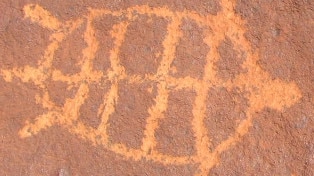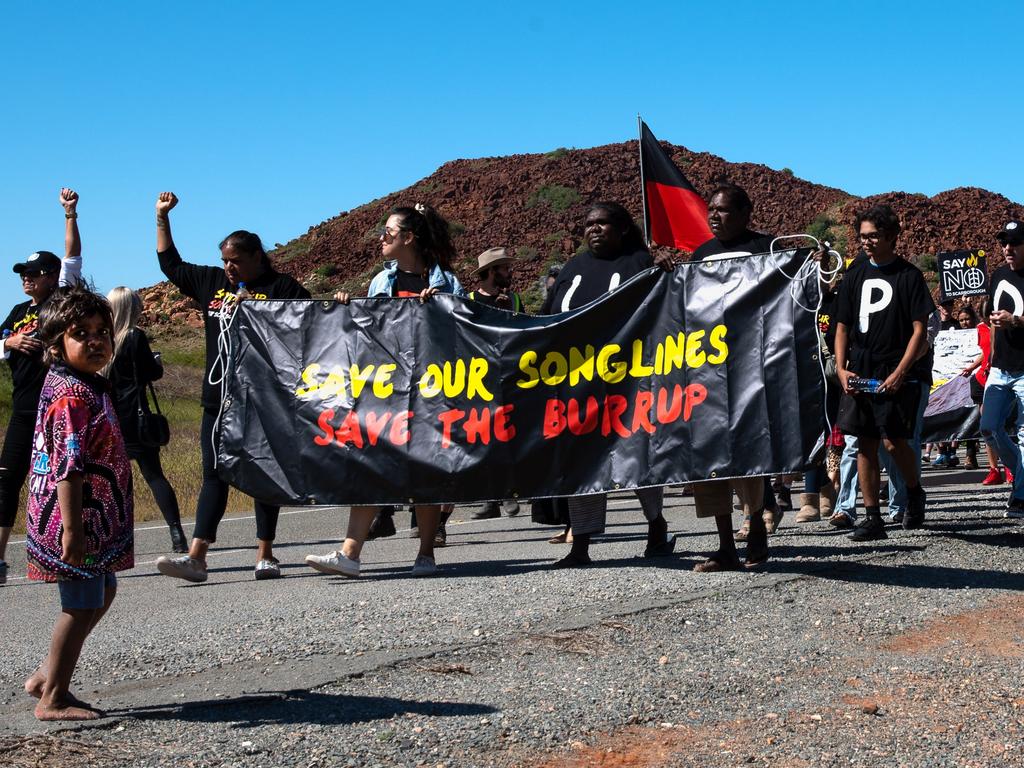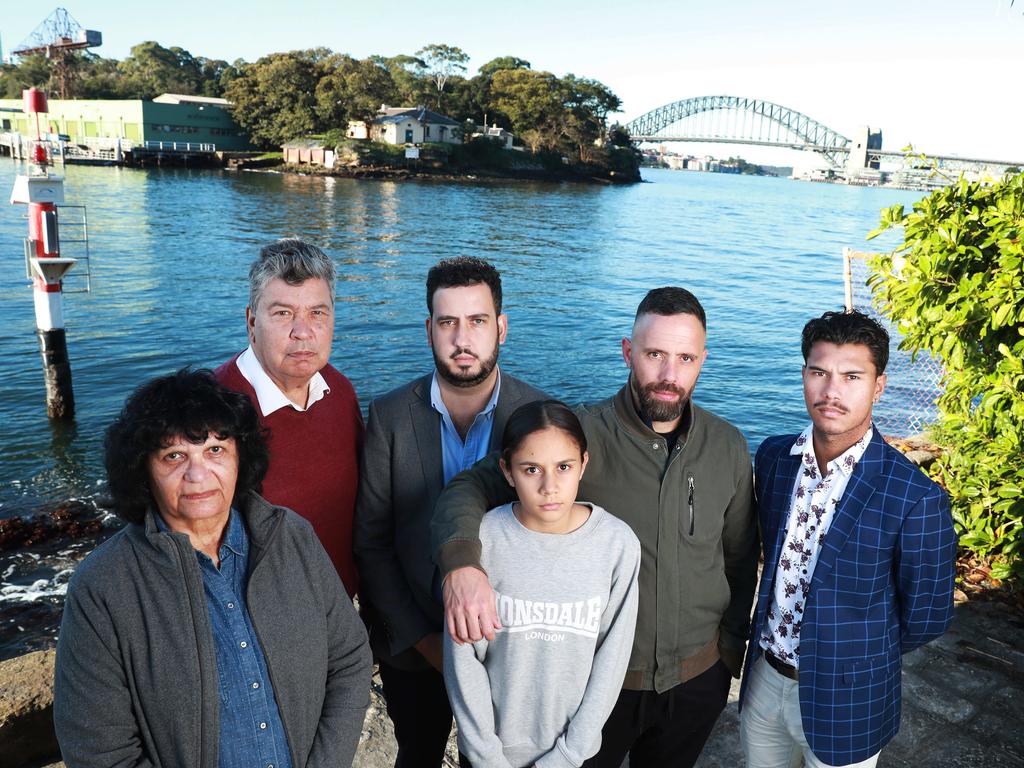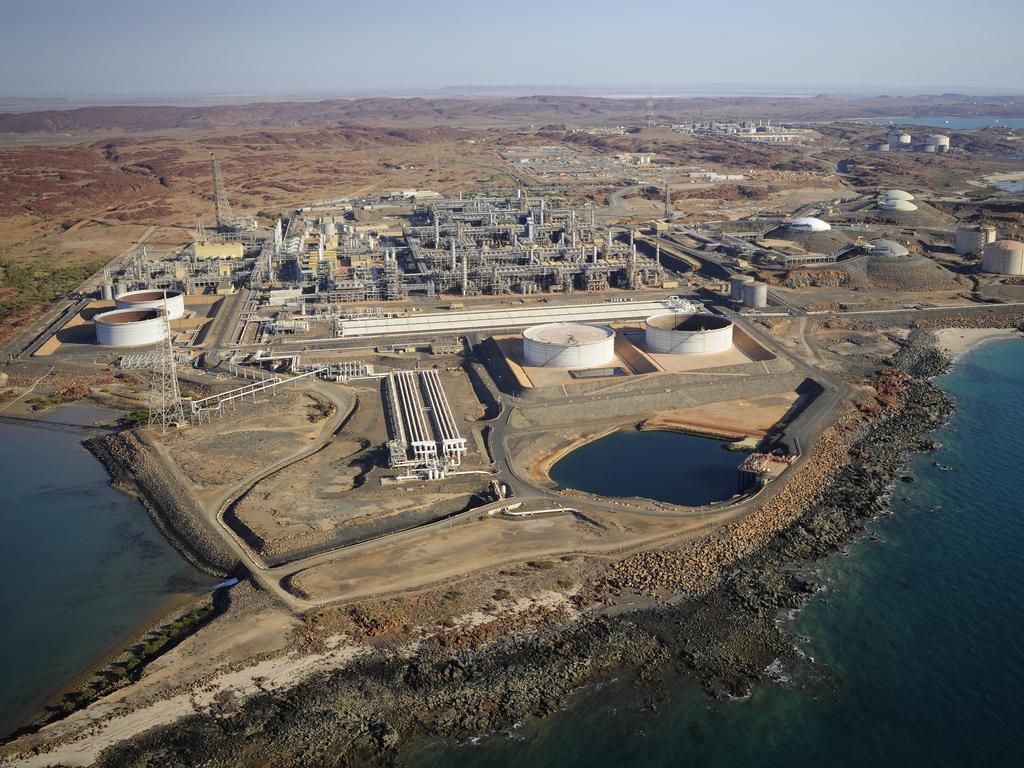Burrup activists to take on North West Shelf gas project
The activist group that succeeded in getting Tanya Plibersek to pause construction of a $4.5bn urea project on the Burrup Peninsula has set its sights on the nearby North West Shelf LNG plant.

The activist group that succeeded in getting Environment Minister Tanya Plibersek to pause construction of a $4.5bn urea project on the Burrup Peninsula has set its sights on the nearby North West Shelf LNG plant, one of the country’s biggest industrial projects.
Save Our Songlines on Thursday officially lodged its appeal against the decision of Western Australia’s Environmental Protection Authority to extend the life of the North West Shelf out to 2070, arguing the project will endanger the extensive Indigenous rock art in the region.
The group’s appeal was one of more than 550 such objections lodged with WA’s Office of the Appeals Convenor, making it the most appealed project in the department’s history, and setting the stage for a protracted assessment.
The focus on the North West Shelf came just a day after The Australian revealed Ms Plibersek had asked chemical company Perdaman to pause work at its proposed urea project. Both projects sit on WA’s Burrup Peninsula, with North West Shelf partner Woodside Energy having previously agreed to supply gas to Perdaman for 20 years.
The Burrup is home to the world’s largest concentration of rock engravings, many of which were destroyed by previous industrial developments, and there have long been concerns that emissions from the LNG and fertiliser plants on the Burrup are exacerbating the decay of remaining rock art.
The Burrup region is shaping as an early test of the new federal government’s position on major industrial developments, given their significant emissions profile and their potential impact on Aboriginal heritage sites.
Save Our Songlines’ Raelene Cooper and Josie Alec, who hail from the language groups of the Burrup area, said the combination of climate change and the impact on rock art risked “the potential extinction of ancient cultural practices which have survived hundreds of generations”.
“The story of the Burrup is a story of dispossession, coercion, and cultural genocide at the hands of industry and the government agencies which facilitate this industry including the EPA,” the pair said. The arguments in the grounds of appeal included that there had been insufficient consultation with traditional custodians and a failure to consider the potential impact of the project on efforts to have the Burrup listed as a World Heritage area.
They also said the EPA’s assessment failed to take into account the feelings and perceptions of the traditional custodians. “The monitoring … has not been designed to detect the spiritual or energetic forces … connected with each piece of rock art, or how they are connected together in an energetic network, which in turn connects to all plants and animals, our totemic system, skin system, language, cultural practices; and sea, land and sky country in a dynamic, ever-changing energetic web. The scientific monitoring … does not measure what we feel and understand.”
International NGO Human Rights Watch also submitted an appeal, saying the EPA did not adequately consider the environmental harm posed to the community by the project.
“Governments … have a human rights obligation to reduce the greenhouse gas emissions that are driving the climate crisis,” the organisation’s Australia researcher, Sophie McNeill, wrote.
The push by Save Our Songlines to impede the North West Shelf and Perdaman has also brought into relief the division within the different language groups of the region.
The Murujuga Aboriginal Corporation was set up to represent the five language groups, but Save Our Songlines includes a host of MAC members and former office holders who believe the organisation is not pushing back against the developments sufficiently.
The MAC is part of an ongoing monitoring program of the rock art alongside WA’s Department of Water and Environmental Regulation, supported by Woodside.
The EPA’s North West Shelf assessment found there were no planned impacts to the 134 Aboriginal heritage sites within the development area.
A spokeswoman for Woodside said the North West Shelf had an important role to play in providing energy that can support decarbonisation efforts around the world.







To join the conversation, please log in. Don't have an account? Register
Join the conversation, you are commenting as Logout